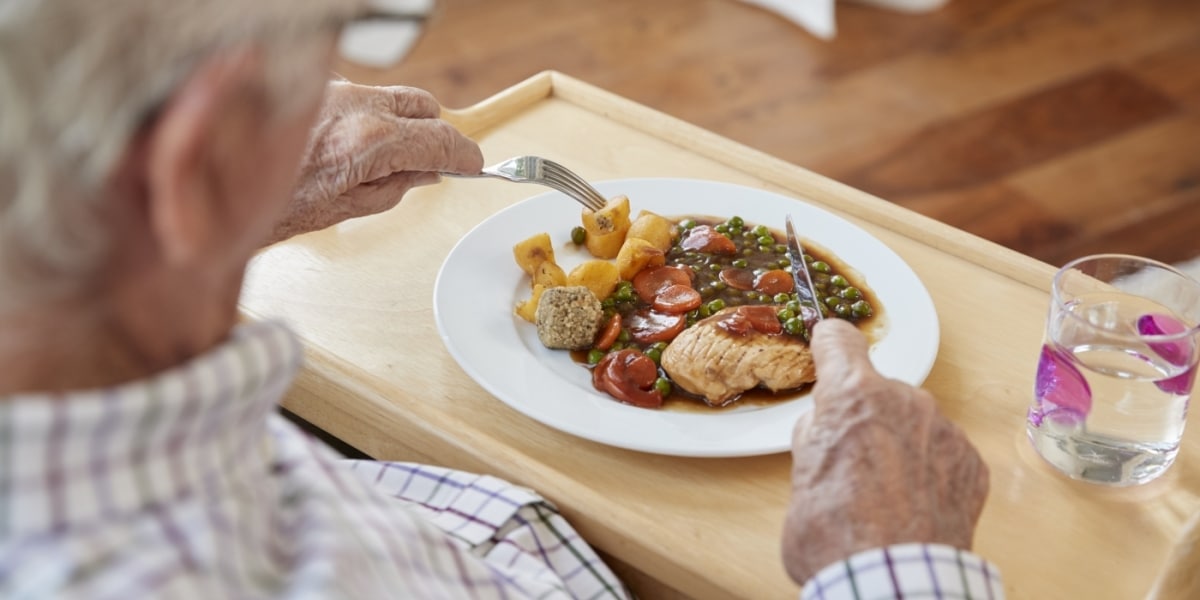
While it is true that seniors have unique nutritional needs, and that eating well can improve quality of life, there are plenty of myths that surround that truth. These myths can make it hard to decipher what these unique nutritional needs are, and as a caregiver, this can add more stress to a job that’s already filled with a feeling of heightened responsibility. Understandably, you want to be able to give those under your care the best quality of life, and be making decisions that will benefit their health.
Below we’ve listed the most common senior nutrition myths and the truth behind them, so you can learn which nutritional tips to follow, which ones you should be taking with a grain of salt, and the ones you should avoid completely. While every individual will have their own nutritional needs depending on age and any specific medical conditions, being aware of these myths will give you some helpful guidelines to go by.
- Senior metabolisms slow down with age, so they don’t need as many nutrients
While the caloric intake for seniors is typically lower than what it would be for younger adults, getting enough nutrients is still essential for health. Nutrient dense foods that support healthy bones, skin, and hair are important. It should also be noted that as we age, our body’s ability to absorb nutrients decreases, so in addition to nutrient dense foods, supplements of B12, Vitamin D, and Calcium should be a part of a senior’s diet to help support their health. - Supplements can be a substitute for real food
While supplements can and should be a part of a healthy diet, they should never be a substitute for actual food, and should never replace meals. Relying entirely on supplements can result in negative side effects, and adversely affect a senior’s health, even resulting in malnutrition. - If your loved one or patient isn’t hungry, it’s ok for them to skip meals
A loss of appetite is a common occurrence in the elderly, but it doesn’t mean meals should be skipped entirely. It’s better to eat a little something nutritious at every meal than to eat nothing at all. Missing meals can compound already existing health problems, and cause dangerous fluctuations of blood sugar levels to occur. - Following general healthy eating guidelines is adequate for senior health
While following general health and nutrition guidelines is a great start, it’s important to remember that as we and our loved ones age, our nutritional needs will change and become even more specific. As a result, senior specific nutritional guidelines should be followed. Dietary needs are largely impacted by the elderly individual’s health. With so much conflicting information surrounding nutrition, and an endless list of diets to choose from, we recommend consulting with a professional. A registered dietician will be able to address dietary needs on an individual basis. - Eating alone is fine if your elderly loved on is getting enough nutrition
Getting enough nutrition is only half the equation here. Older adults who tend to eat alone are more likely to experience loneliness, stress, and anxiety. They’re more likely to eat less, and less healthily. One of the many benefits of living in a senior community is having the option to eat with others. This type of community is also a good solution for those who are no longer able to prepare their own meals. - Senior care facilities don’t offer good food
While this is a common stereotype, this isn’t the case at Loretto. Our registered dieticians provide balanced meals, and take each resident’s health needs into consideration. Our AdvancedMeal system allows us to provide our residents with high quality food, plenty of options to choose from, and menu customization.
With 19 specialized programs and facilities and 2,500 hundred dedicated caregivers, Loretto is dedicated to providing quality care to the Central New York Community. We proudly serve 9,000 residents and their families with a system of care that addresses the unique needs of every individual. Looking for more information on care for you and your loved one? Visit our Choosing Your Care page, or feel free to contact us!
